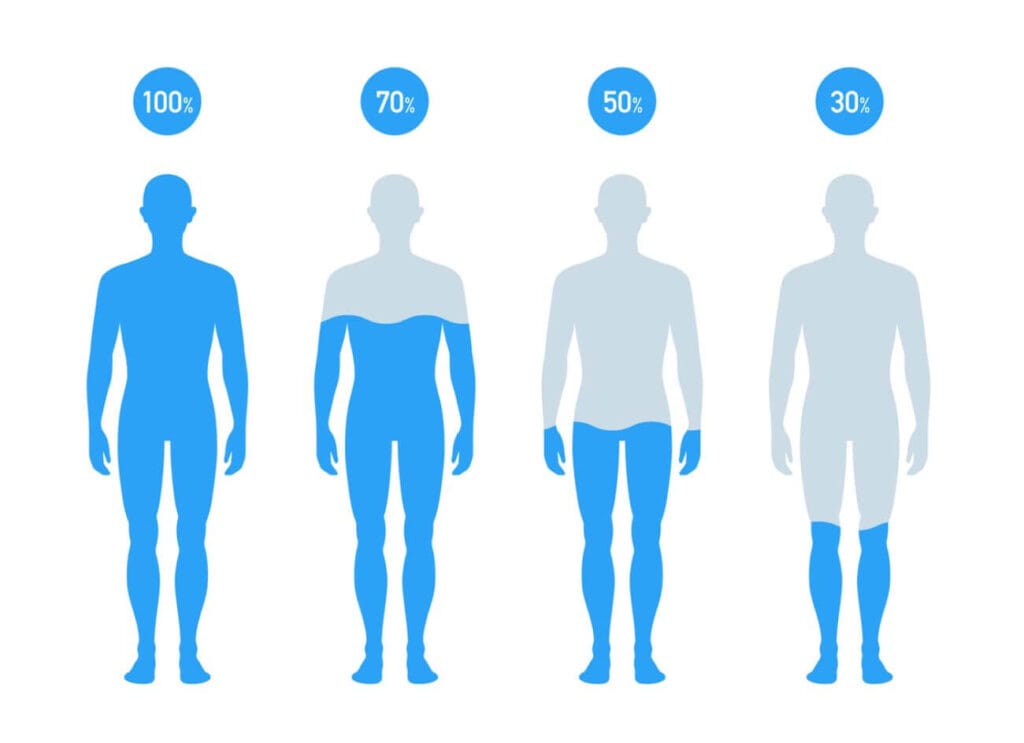After bariatric surgery, hydration becomes one of the most critical parts of recovery. Because the stomach is smaller and can’t hold large amounts of fluid, patients must relearn how to drink water in a way that keeps them healthy without discomfort. Proper hydration supports healing, weight loss, and overall well-being.
Why Hydration Matters After Bariatric Surgery
1 Supports Healing
Water helps your body recover from surgery by carrying nutrients to cells and flushing out toxins.
2 Prevents Dehydration
Dehydration is one of the most common reasons patients are readmitted to the hospital after surgery.
3 Boosts Energy
Staying hydrated reduces fatigue and helps concentration.
4 Aids Digestion
Fluids keep the digestive system working smoothly, preventing constipation.
5 Supports Weight Loss
Drinking water before meals helps manage appetite and prevents overeating.
The Golden Rules of Hydration Post-Surgery
1. Sip, Don’t Gulp
Because the stomach is much smaller, drinking too quickly can cause nausea, discomfort, or vomiting. Patients should sip slowly throughout the day.
2. Separate Eating and Drinking
Avoid drinking 30 minutes before and after meals. Mixing food and fluids can push food through the stomach too quickly and cause bloating.
3. Aim for the Right Amount
Most patients need 48–64 ounces (1.5–2 liters) per day, but this should be done gradually, in small sips.
4. Choose the Right Fluids
✅ Best options: water, herbal teas, sugar-free drinks, and broth.
❌ Avoid: carbonated drinks, alcohol, and sugary beverages.
5. Carry a Water Bottle Everywhere
Having water nearby helps build consistency and prevents dehydration.
Signs of Dehydration to Watch For
- Dry mouth or chapped lips
- Headaches
- Dizziness or lightheadedness
- Dark urine or reduced urination
- Fatigue and weakness

If these symptoms occur, hydration should be increased immediately, and in severe cases, medical attention may be required.
Tips to Make Hydration Easier

- Set reminders or use apps to track water intake.
- Infuse water with lemon, cucumber, or berries for flavor.
- Use small cups to avoid overwhelming the stomach.
- Alternate between warm and cold fluids to see what feels best.
The Long-Term Role of Hydration
Hydration isn’t just about recovery. Staying properly hydrated helps maintain energy levels, supports long-term weight management, and keeps the skin and organs healthy. It becomes a lifelong habit that plays a central role in success.
Looking Ahead
With hydration under control, the next big milestone is learning how to reintroduce solid foods step by step after bariatric surgery.
🔗 Up Next: The Transition to Solid Foods: Step by Step
Hydration may seem simple, but after bariatric surgery, it becomes a new skill that requires mindfulness and consistency. By sipping slowly, choosing the right fluids, and avoiding dehydration, patients set the stage for smoother recovery and long-term success.



